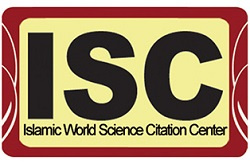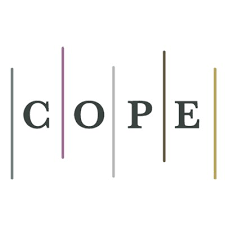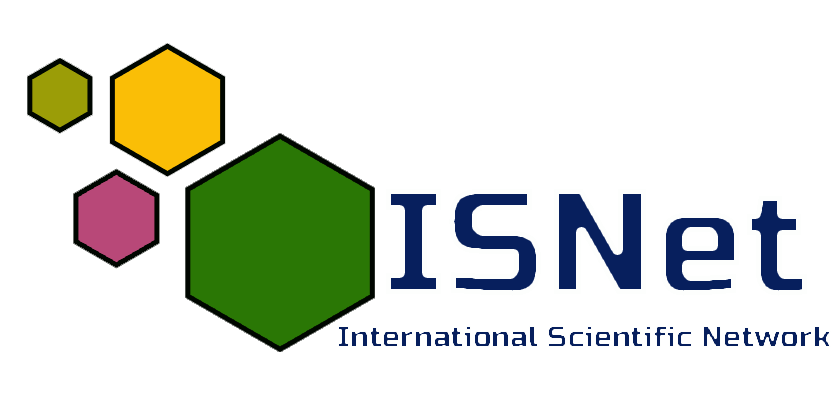A Comparative Study of the Scientific and Technological Organizations of the Countries on Human Resource Productivity
DOI:
https://doi.org/10.52547/ijimes.1.4.17DOR:
https://dorl.net/dor/20.1001.1.27832678.2021.1.4.3.9Keywords:
Human Resources Productivity, Scientific and Technological Organizations, Comparative StudyAbstract
Purpose: Human resources are the most valuable assets of any organization. Considering the importance of employees' productivity, this research aimed at identifying factors affecting human resource productivity using the experience of countries in scientific and technological organizations.
Methodology: For this purpose, using comparative studies approach and using the experience of scientific and technological organizations from Germany, England, Turkey, Taiwan and South Korea, firstly, the most important factors affecting human resource productivity were identified and evaluated.
Findings: The results show that the components of organizational support, education and learning, organizational culture, job satisfaction, staff motivation, organizational structure, effective leadership and management, competitiveness and creativity and innovation have a significant effect on human resource productivity in scientific and technological organizations.
Originality/Value: Since the determination of relations between variables and types of variables can lead to better understanding of the subject and make appropriate decisions, it is suggested to managers of scientific and technological organizations to work in order to promote the components in light of the nature of each variable, Improve and change the productivity of your organization.
Downloads
References
Arulrajah, A.A. (2017), Productivity and Quality Management through Human Resource Management: A Systematic Review, International Review of Management and Business Research, 6(2), 419-428.
Ghahremani Nahr, J. (2020). Improvement the efficiency and efficiency of the closed loop supply chain: Whale optimization algorithm and novel priority-based encoding approach. Journal of Decisions and Operations Research, 4(4), 299-315. DOI: 10.22105/dmor.2020.206930.1132
Mirafshar, B., Babaei, M. R., Rostamy Roochi, E., Rashidi, A. and Pourahad, V. (2017), Effective indicators in human capital productivity of urban management organization, International Journal of Human Capital Urban Manage, 2(2), 139-146. https://dx.doi.org/10.22034/ijhcum.2017.02.02.005
Nory, F., & Ghahremani Nahr, J. (2019). Robust-possibilistic optimization method at design of a pharmaceutical supply chain network under uncertainty and discount on purchase the raw material. Journal of Modeling in Engineering, 17(58), 249-266. DOI: 10.22075/jme.2019.13798.1358
Shaker Ardakani, M., Abzari, M., Shaemi, A., & Fathi, S. (2016), Diversity management and human resources productivity: Mediating effects of perceived organizational attractiveness, organizational justice and social identity in Isfahan’s steel industry. Iranian Journal of Management Studies, 9(2), 407-432.
Ahmad, N., Othman, S.N. and Mad Lazim, H. (2014), A Review of Technological Capability and Performance Relationship in Manufacturing Companies, International Symposium on Technology Management and Emerging Technologies, 5, 192-198.
Dukec, D. and Miroslav, S. (2017), the Effect of Human Capital on Labor Productivity: A Case Study of Hilding Anders Ltd, Education for Entrepreneurship, 7(1), 9-19.
Rahman, I. A., Memon, A. H., Memon, A. Q., Shaikh, M. A., & Siddiqui, F. (2019). Factors affecting the labour productivity in construction projects of Pakistan. In MATEC Web of Conferences (Vol. 266, p. 05010). EDP Sciences. https://doi.org/10.1051/matecconf/201926605010
Maciulyte Sniukiene, A. and Matuzeviciute, K. (2018), impact of human capital development on productivity growth in eu member states, business, Management and Education, 16(1),1-12.
Khan, M. M., & Rasli, A.M. (2015), Relationship between organization culture, empowerment and conflict. International Journal of Economics and Financial Issues, 5, 1-11.
Menon, S.A. (2015), HRM in Higher Education: The Need of the Hour, IOSR Journal of Research & Method in Education, 5(6), 12-14.
Haghighatian, M. and Ezati, Y. (2015), an investigation into Effective Factors on Human resources productivity (Case Study: Region 11, Islamic Azad University, Iran), Social and Behavioral Sciences, 205, 601-607. https://doi.org/10.1016/j.sbspro.2015.09.089
Sakhrekar, S., & Deshmukh, R. (2014), Impact of Organizational Culture on Employees: Concise Study of Literature, International Journal of Organizational Behaviour & Management Perspectives, 3(4), pp. 124-129.
Nahr, J. G., Nozari, H., & Sadeghi, M. E. (2021). Green supply chain based on artificial intelligence of things (AIoT). International Journal of Innovation in Management, Economics and Social Sciences, 1(2), 56-63. https://doi.org/10.52547/ijimes.1.2.56
Nozari, H., Najafi, S. E., Jafari-Eskandari, M., & Aliahmadi, A. (2016). Providing a Model for Virtual Project Management with an Emphasis on IT Projects. In I. Management Association (Ed.), Project Management: Concepts, Methodologies, Tools, and Applications (pp. 476-496). IGI Global. http://doi:10.4018/978-1-5225-0196-1.ch023
Mehdipour, H., & Shirini, N. (2021). Investigating the Impact of Digital Marketing and Its Effectiveness on Career Growth through Export Performance (Case Study of Top Commercial Companies in East Azerbaijan Province in Iran). International journal of Innovation in Marketing Elements, 1(1), 37-47.
Hakkak, M., Mofrad, M. M., & Saedi, A. (2021). The Effect of Immaculate leadership on Human Resource Productivity: The Role of Social Capital.
Arshad, M. N., & Ab Malik, Z. (2015), Quality of human capital and labor productivity: a case of Malaysia, International Journal of Economics, Management and Accounting, 23(1), 37-55.
Annabi, N. (2017), Investments in education: what are the productivity gains, Journal of Policy Modeling, 39, 499-518. https://doi.org/10.1016/j.jpolmod.2017.03.003
Samadzad, S., & Hashemi, M. (2021). Human Resource Productivity and Work-Life Balance in Learning Organizations. International Journal of Innovation in Management, Economics and Social Sciences, 1(3), 32-45. https://doi.org/10.52547/ijimes.1.3.32
Ekienabor, E.E. (2016), Impact of Job Stress on Employees' Productivity and Commitment, International Journal for Research in Business, Management and Accounting, 2(5), 124-135.
Nouri, F., & Ghahremani Nahr, J. (2019). Structural-interpretative Patterns of Factors Affecting the Sustainable Development of Agricultural Production Cooperatives (Case Study: East Azerbaijan Province). Journal Of Agricultural Economics and Development, 33(3), 281-297.
Baker, J. (2012). The technology–organization–environment framework. Information systems theory, 231-245. https://doi.org/10.1007/978-1-4419-6108-2_12
Veloso, C. M., Sousa, B., Au-Yong-Oliveira, M., & Walter, C. E. (2021). Boosters of satisfaction, performance and employee loyalty: application to a recruitment and outsourcing information technology organization. Journal of Organizational Change Management. https://doi.org/10.1108/JOCM-01-2021-0015
Annual Report of Fraunhofer institute, 2017.
Park, H. W., & Leydesdorff, L. (2010), longitudinal trends in networks of university–industry–government relations in South Korea: The role of programmatic incentives. Research policy, 39(5), 640-649. https://doi.org/10.1016/j.respol.2010.02.009
KIST, Platform of the 4th Industrial Renolution, (May, 2017).
Annual Report of TSB institute, 2014-2015.
Geyik, E.U., Yetkin Aker, D., Arun, K. & Günaydın, D. (2016), Porter’s Theory, Innovation and Local Productivity: A Meta-Analysis For Turkey, Scientific Cooperations 2nd International Conference On Social Sciences, Istanbul-turkey, 112-121.
Annual Report of ITRI, 2016.
Korkmaz, S. and Korkmaz, O. (2017), the Relationship between Labor Productivity and Economic Growth in OECD Countries, International Journal of Economics and Finance, 9(5), 71-76.
Published
How to Cite
Issue
Section
License
Copyright (c) 2021 Faramarz Nouri

This work is licensed under a Creative Commons Attribution 4.0 International License.












